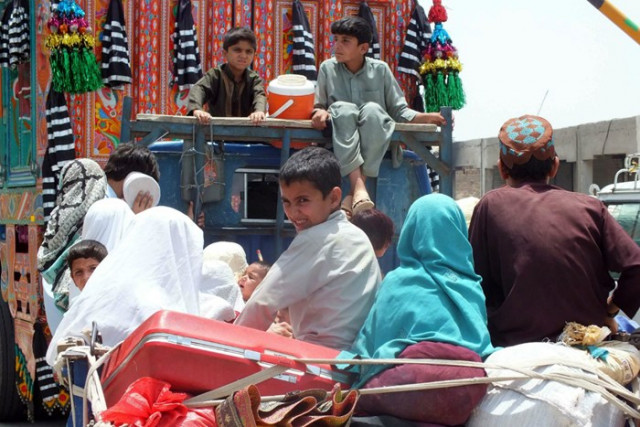Managing the IDPs
Whatever the final outcome of the fight for North Waziristan, it will be the 600,000 IDPs that pay the highest price.

Managing the IDPs

Quite apart from the human cost of such a displacement, there is a substantial financial penalty. The Economic Coordination Committee has approved the release of 60,000 tons of wheat and Eid packages are being distributed from July 5, 2014. So far, Rs338 million has been disbursed to 28,167 families and that figure will increase the longer the IDPs are living outside their ancestral lands. Tensions within the camps are on the rise. Two men were killed in Bannu on July 4 in a dispute at a ration depot, and there are numerous reports of fights and arguments — which is hardly surprising given the dire straits these people now find themselves in. This situation is not going to improve with time. There is no end yet in sight to the operation and consequently, no return-by date for people who have, in effect, lost everything in the space of a few days. Whatever the final outcome of the fight for North Waziristan, it will be the 600,000 that pay the highest price.
Published in The Express Tribune, July 7th, 2014.
Like Opinion & Editorial on Facebook, follow @ETOpEd on Twitter to receive all updates on all our daily pieces.














COMMENTS
Comments are moderated and generally will be posted if they are on-topic and not abusive.
For more information, please see our Comments FAQ